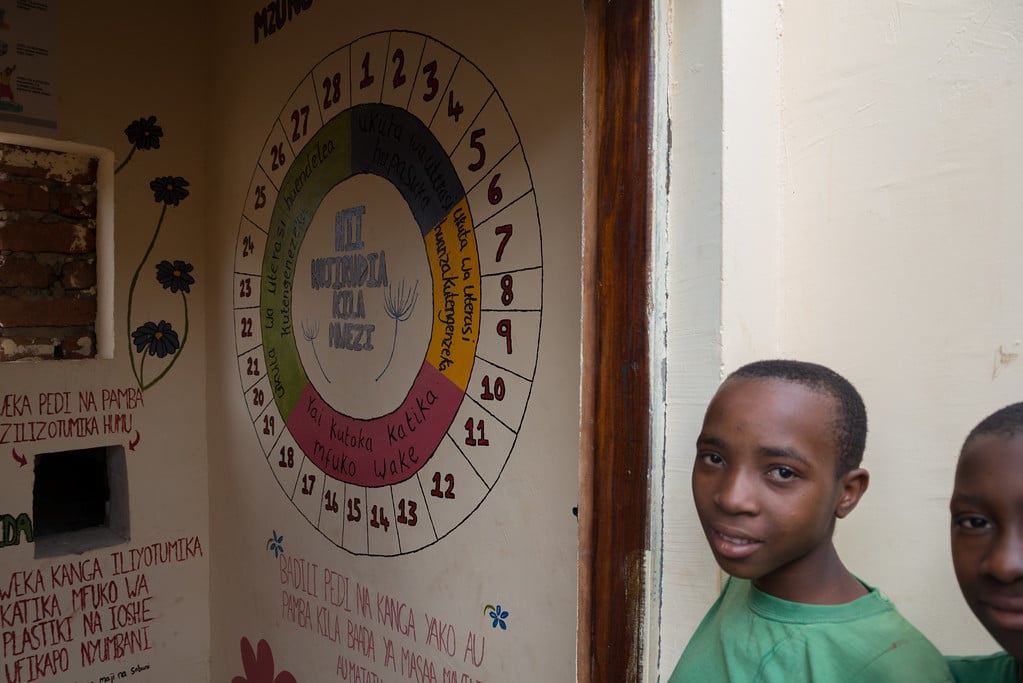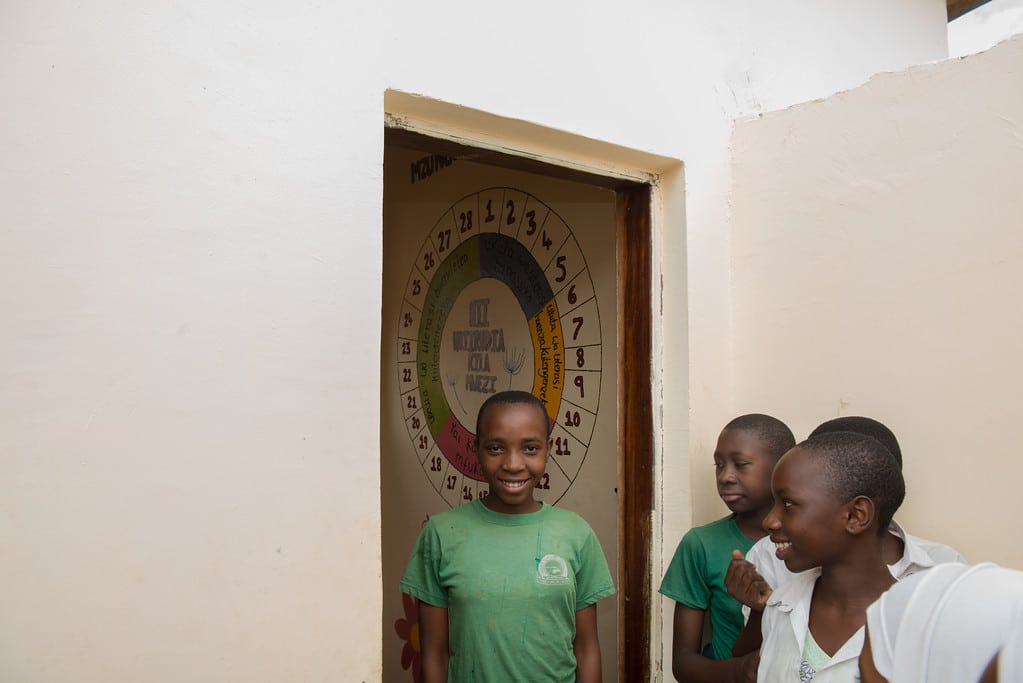Menstrual Hygiene Day 2020: Raleigh Tanzania and Mema Supporting Young Girls to Stay in Schools
According to research, after reaching puberty, girls are less likely to attend school regularly if toilet and sanitation facilities are inadequate. Through water, sanitation and hygiene (WASH) projects Raleigh Tanzania has partnered with Tanzanian government to reduce this by building safe and clean toilet blocks in schools with menstrual hygiene management facilities which encourage girls to continue their education during menstruation.
Menstrual hygiene is still a taboo subject in many Tanzanian communities. It is not easy to teach young girls about it because most parents, especially in rural areas, confuse menstrual hygiene management and sexual education. Raleigh Tanzania’s young volunteers use government guidelines and materials which are approved by the Ministry of Education to teach menstrual hygiene management safely to ensure community engagement with the topic.
Within Raleigh’s WASH projects girls are taught about different types of sanitary materials and how to dispose of them once they have been used. We do not try to change what is already in the community as we know that some sanitary materials are either too expensive or not available in rural areas. We know that many young girls use a piece of cloth (kanga) and we teach them how to properly clean, dry and iron them so that they can be reused. Girls are also taught how to make reusable pads from local available materials.
“Menstrual hygiene management education has helped me to…tell my female teacher [that I am menstruating] when I am at school and being open to my parents.” Female participant in WASH programme, 15 years old
Alongside providing menstrual education, WASH project volunteers also build a menstrual hygiene management (MHM) rooms within the toilet blocks they construct in schools and guide young girls how to use it. Usually, these rooms have murals such as menstrual cycle sketches where girls continue to learn how to count the days in their cycle. The room also has additional facilities which to make it easy for them to clean themselves. The room itself has an incinerator attached so girls who are using pads can dispose of them in a safe and hygienic way.
In 2019 Raleigh Tanzania’s young volunteers worked in nine communities, helping to construct 33 gender specific toilets for students, delivering 23 hygiene facilities and 45 murals to reinforce safe WASH behaviour. Through awareness raising activities volunteers also reach 8,000 people with improved knowledge of safe WASH behaviours.
Youth-led approaches to tackling Tanzania’s lack of menstrual hygiene management awareness and facilities are increasingly important and effective. Evidence shows that a peer to peer approach, rather than top-down, has benefits for increase effectiveness, reach and sustainability.
Another example of this is Mema Tanzania (a youth-led organisation which provides sanitary pads to students in schools). Since 2018 Mema has been actively engaging in supporting MHM through social media campaigns, co-organised events and outreach projects. They launched Sauti Ya Binti (a consortium project in partnership with US Embassy of Tanzania) which aims to break the silence around menstruation and install sanitary pad vending machines in schools. The project pilot reached four schools in Dar Es Salaam where over 400 school children benefited from menstrual hygiene training and over 1,400 girls gained increased access to sanitary pads through vending machines. The machines enabled girls to purchase pads at subsidized cost. Between 2018 and 2020 more than 18,000 pads have been sold. This helped girls not to skip schools whilst menstruating and increased access of MHM products in schools. The four schools also created ‘Mema Clubs’ to ensure project sustainability and these continue to raise awareness on menstrual hygiene and sexual and reproductive health through school drama performance, debate, and storytelling.
“Menstrual hygiene management education has helped me to learn how to use pads.” Female participant in WASH programme, 13 years old
Youth-led action is empowering young women to manage their own bodies, to speak about menstruation without fear and enabling them to continue their education. This Menstrual Hygiene Day we can commit to work together to create the world in which women and girls are no longer held back because of their period.





